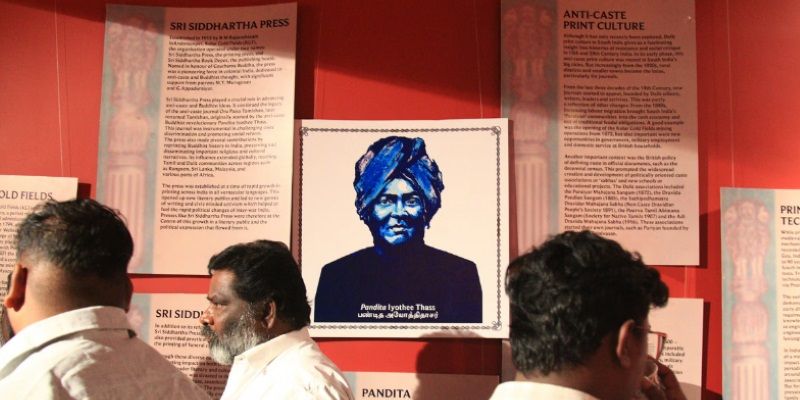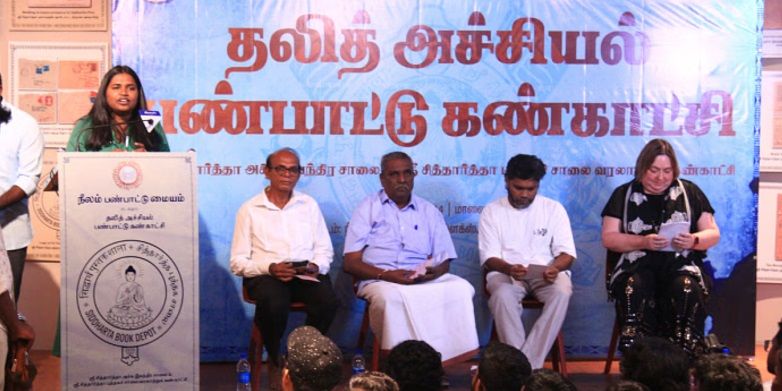The Sapling Fund – one year on

The Sapling Fund aims to support the development of research projects by building meaningful connections between University researchers and individuals from communities, charities, and cultural organisations.
Much like a sapling that requires nurturing to grow, the Fund encourages collaborations that merge new knowledge with valuable insights, directly benefiting those involved in its creation.
Co-delivered by the Leeds Arts and Humanities Research Institute (LAHRI) and the Cultural Institute, the Fund has supported seven diverse projects in 2023-2024, ranging from exploring abolitionist futures to developing AI-driven archival systems in India. Now, one year on, we look back at how the fund has impacted both the researchers and their community collaborators and explore what lies ahead for them.
(Photo credit for previous image: Neelam Cultural Centre)
Radical interdisciplinary collaboration
An integral aspect of the Sapling Fund is to encourage collaboration across radically different disciplines to drive meaningful change in the cultural sector and beyond.
One such project, Affect, Algorithms, and Archives, was led by Dibyadyuti Roy (Lead Investigator), Liz Stainforth (Co-Investigator, Leeds), and Venkat Srinivasan (Co-Investigator, Milli Archives).
In partnership with the Milli Archives Foundation, the project examined the role of digital technologies in humanities research, particularly how AI-driven archival systems can reinforce biases. By integrating emotional responses into archival representation, this collaboration not only deepened academic understanding but also introduced a more inclusive framework for preserving cultural heritage.
“Our project has successfully demonstrated how academic and cultural institutions, particularly in the age of AI-influenced curation and archival practices, must reconsider traditional and contemporary archival practices.”
Building strong, meaningful, and sustainable collaborations

(Photo credit: Neelam Cultural Centre)
A key element of the Sapling Fund is the importance of building strong, sustainable partnerships between research and non-higher education institutions.
For instance, the From Paper to Pixel: Anti-Caste Print Culture project, (Lead Investigator: William Gould) involved collaboration between historians and local activists to explore the role of print culture in anti-caste movements in South India.
The partnership with the Siddhartha Press not only unearthed a rich historical archive but also provided a platform for community engagement, connecting academic research to contemporary struggles against caste-based discrimination.
“The project has facilitated access to an archive on rare but significant early Dalit printing activities, provided training in archive studies for the Research Assistant, solidified key partnerships between South Indian publishing organisations and Leeds academics, and laid the groundwork for a larger, multi-partnered research project on Dalit printing and enterprise in the 20th century.”
Empowering communities through research
A common theme across the cohort is empowering communities in the process of developing new knowledge and insights. Several projects focused on providing skills and tools to participants, helping them actively shape the research process and outcomes.
The Food on Film: Bradford Food Sustainability project (Lead Investigator: Rory Padfield), for example, trained local community members in filmmaking to document food sustainability practices in their area. The resulting films not only raised awareness about sustainable food systems but also provided participants with valuable skills in filmmaking and storytelling.
“The workshops we ran as part of the fund led to new networks and discussions with Bradford City Council about using community films in public policy, with the films set to be showcased at the City of Culture 2025 events. One group is already planning a film series, and the National Science and Media Museum is exploring hosting a screening.”

(Photo credit: Fenia Kotsopoulou)
Similarly, the Arts and Abolitionist Futures project (Lead Investigator: Ally Walsh) used arts-based methodologies to engage communities in imagining a world without prisons. Through participatory workshops, participants created visual art pieces that reflected their vision of abolitionist futures.
“The project has introduced new approaches, including using visual arts methodologies and archive materials as a fresh trajectory for me as an arts activist and for the organisation. It has also led to new ways of working with probation hostels, including involving former residents with lived prison experience as facilitators.”
The Understanding the power of ‘Pragmatic Language’ for youth-led activism project (Lead Investigator: Paul Cooke) addressed gaps in assessing adolescents' use of implicit meaning during social interactions, particularly among young offenders.
In collaboration with CommonWealth, the University of Leeds (World Cinemas, Language and Linguistics) and the University of Bradford, the project used film to explore the relationship between pragmatic language and power. Workshops supported participants to make films about how language impacts social interactions. The project produced 11 films, offering insights into adolescent language use and upskilling participants in digital media production.
“The team at CommonWealth were amazing. The young people picked up the technical side of filmmaking so quickly, but it was their creativity that really blew me away. They took the discussion of pragmatic language in directions we never would have imagined.”
Reimagining social history and breaking down bias
Several projects focused on transforming societal narratives, using creative methodologies to address complex issues and challenge dominant historical or social narratives.
The A Teaspoon of Shampoo project (Lead Investigator: Rob Eagle), which used theatre and oral history to explore the life of Dr Saeed, a controversial figure in Bradford’s South Asian community, is a prime example. Through community workshops, participants were able to shape the narrative, which culminated in a live theatre production. The project’s success lay in its ability to bring a complex historical story to life in a way that was engaging, inclusive, and relevant to the community, highlighting the power of theatre as a tool for public education and social change.
In its archival recovery and interdisciplinary interpretation of the buried history of a Somali ‘ethnographic village’ that came to Bradford as part of the Great (Industrial) Exhibition of 1904, the project A Somali Village in Colonial Bradford (Lead Investigator: Fozia Bora) presents an innovative community-led collaboration. A new partnership brings together the Universities of Leeds and Bradford, Bradford District Museums and Galleries, Somali organisations including the Anglo-Somali Society and the Everyday Muslim archive, for the co-creation of research and the co-curation of artistic outputs.
In uncovering, reshaping and reinterpreting this buried aspect of Bradford’s colonial history, the project is now being developed for Bradford’s 2025 City of Culture, reframing the historical narrative around the Somali Village by incorporating the perspectives of contemporary British Somalis, who are leading on research questions and artistic responses to this history.
Through workshops, public lectures, and community engagements to share findings on Bradford’s earliest known Muslim community, the project brings together scholars, artists, and local institutions including schools, theatre and community centres, to challenge the colonial gaze and give the Somali community a platform to share their history, in the wider context of Bradford as a global city with complex trajectories of migration.
By facilitating partnerships across diverse fields, these projects have generated new insights, challenged societal narratives, and provided valuable skills to participants. From film production workshops to reimagining historical narratives, the projects highlight the transformative power of collaboration and community engagement.